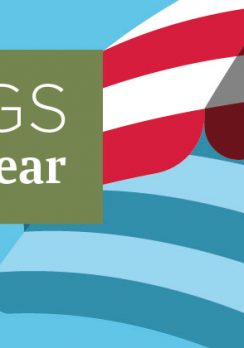Publisher
ISBN 10
We asked our six blog reviewers to tell us about their most memorable blogpost of the school year – and here’s what they said.
Hannah Wilson:
Ramadan Insights
@teachernudge
Yusuf Ibrahim wrote a series of 29 blogs to chart his experience of Ramadan this year. From insights on how one prepares to fast, to reflections throughout the month on fasting and the act of breaking fast, Ibrahim took us on a journey with his daily entries
Each blog informed us about the nuanced cultural traditions of Islam. They offer the reader a glimpse into someone else’s life and to see things through another lens. Ibrahim’s reflections on his wellbeing, his productivity and the way his blogs enhanced his relationships with his work colleagues are honest and thoughtful.
If you don’t have time to read them all, check out blogs 9, 19 and Day 27 to benefit from Ibrahim’s profound reflections on his faith. This blog series embodied my belief that we need to celebrate the cultural richness of our society.
Jon Hutchinson:
In praise of a prosaic curriculum
@ClareSealy
It is no exaggeration to say that Clare Sealy has almost single-handedly transformed the way that primary school teachers and leaders consider what they are teaching and how they teach it. Tragically, there has been a Sealy blog-drought over the last several months. In need of a fix, and because it’s so damn good, I have found myself returning to this blogpost from last year again and again. Tackling one of the slipperiest words in education, “engagement”, Clare makes the argument for a simple yet effective core curriculum in primary. At a time when many schools are panicking and overcomplicating their curriculum design, it may be worth returning to this piece.
Robin Conway:
What is Academic Language?
@DiLeed
There are so many people who generously share their expertise, ideas and experiences for the benefit of students they will never meet, that to select just one blog was an incredibly difficult task. It is a close-run thing, but I believe that I have applied more ideas in my classroom as a result of this post by Diane Leedham’s than anything else I have read so far this year. Leedham has challenged me to think carefully about how to build my students’ familiarity with academic language and their ability to use it, without rejecting “everyday language”. She argues that the successful acquisition of academic language applies across all key stages and is truly powerful. She is absolutely right. The post stands out as one that is empowering, ambitious and yet highly practical and I can only recommend frequent re-reading
Amir Arezoo:
Great Teaching: The Power Of Expectations
@teacherhead
The key message in this blogpost is that your students will meet whatever expectations you have. This is not new to me, but the way Tom Sherrington outlines his argument is a call to action that we should take up if we want to develop an aspirant culture in our schools, no matter how challenging. When I read Sherrington’s blogpost, I shared it with fellow senior leaders and it was distributed to our staff on our return last September. Since then, it has been a touchstone for every key conversation, every training session, every leadership meeting that I’ve led or been part of. It will continue to do so for a long time to come.
Debra Kidd:
An argument for discovery learning in early years classrooms
@Edscacredprofane and @SwailesRuth
In this well referenced blog post, Peter Ford and Ruth Swailes unpick some of the misconceptions around discovery learning and constructivism as presented by researchers such as Kirschner, Sweller and Clarke.Arguments made by these and other academics against modes of learning such as inquiry, problem solving, discovery and constructivism have been increasingly influential among teachers and policy makers, but their definitions of these terms are vague. This blog looks closely at what is really meant by discovery learning with the specific developmental needs of young children in mind.
It offers all the best things that a blog post should do: it’s polite, measured and well reasoned; meticulously researched with clear examples and it serves as a warning to gung-ho ideologues of the importance of both knowing your stuff and the ability to communicate your case well.













such a fantastic article..good job.